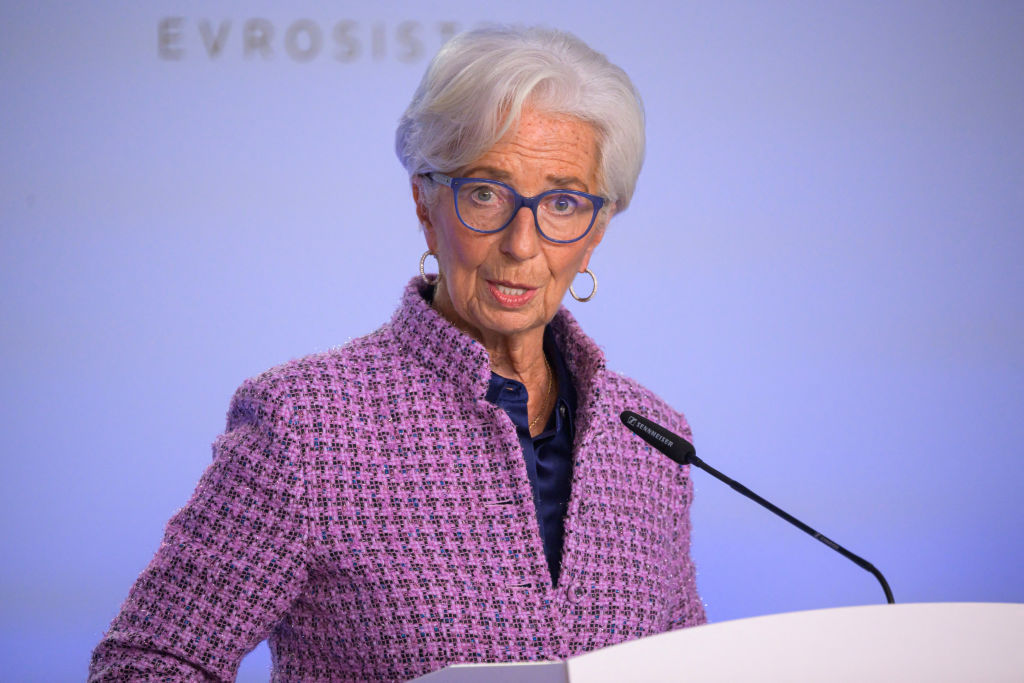Last weekend Boštjan Vasle, Governor of the Bank of Slovenia, warned traders not to read too much into the European Central Bank’s recent back-to-back interest rate cuts. Amid investor expectations that interest rates will fall sharply, Vasle said the bank’s easing did “not automatically mean that we will now act at every meeting”.
His caution echoes similar statements by US Federal Reserve governors, who have also told markets not to get too excited about the future course of rate cuts. With the American economy still buoyant, too swift a fall in interest rates could further swell demand, leading to a resurgence of inflation. With investors anticipating an even steeper set of cuts than the Fed has signposted, dulling their ardour thus appears sensible.
Yet it sounds a bit odd coming from a European voice. The continental economy is anything but buoyant, making a resurgence of inflation seem a distant prospect. Although there are pockets of relative dynamism, particularly in Eastern Europe, the big anchor economies of Italy, France and Germany are all struggling, with the last of the three now in recession. Meanwhile, sandwiched as they are between an increasingly protectionist United States and an aggressively competitive China, its exporters are having a hard time holding onto global market share, making an export-led recovery seem a distant prospect, at least for now.
Nor is there any reason to think things might change much soon. Although Mario Draghi, formerly ECB chief and ex-Italian prime minister, produced an impressive report last month suggesting ways the EU could use industrial policy to revive the economy, it may sit on the desks of the major capitals. The two big beasts, France and Germany, are saddled with weak governments whose clock is running down, making it improbable anyone will want to pilot the Draghi proposals through the continent’s delicate diplomacy.
Further reinforcing the policy inertia is the rise of radical populist parties, which is slowing the pace of change. The need of increasingly fragile governments to keep the populists at bay is making them even more reluctant to make the sweeping economic reforms needed to revive growth. French President Emmanuel Macron tried creating a more business-friendly economy with some bold reforms. Look where it got him.
All told, there’s little reason to expect the sort of demand-led inflation that the Fed is concerned about could resurface in Europe in the foreseeable future. However, the risk may not lie in the economy but in the continent’s febrile politics. Indeed, it may be with one eye on the populists that Vasle has aired his concerns. Like almost all developed economies, Europe’s population is ageing — which means it relies on immigrants to supplement what would otherwise become a declining workforce. Restricting immigration, a non-negotiable for the populists, would thus slow and possibly reverse economic growth.
Yet rather than factor that into their political programmes, Europe’s new challengers tend to go the other way, promising even more generous welfare states and higher wages. Such fiscal largesse amid economic contraction would ultimately fuel inflation. Although we have not reached that tipping point, the ability of governments to keep their budgets in balance while fending off siren songs from the political fringes is looking increasingly doubtful. Where governments have kept spending under wraps, as in Germany, they’ve often done it by cutting investment so deeply the economy ends up worse off. Needless to say, that only strengthens the appeal of the populists.
Europe therefore seems to be caught between economic contraction and fiscal expansion. For as long as that tension persists, the ECB will feel the need for vigilance.











Join the discussion
Join like minded readers that support our journalism by becoming a paid subscriber
To join the discussion in the comments, become a paid subscriber.
Join like minded readers that support our journalism, read unlimited articles and enjoy other subscriber-only benefits.
Subscribe